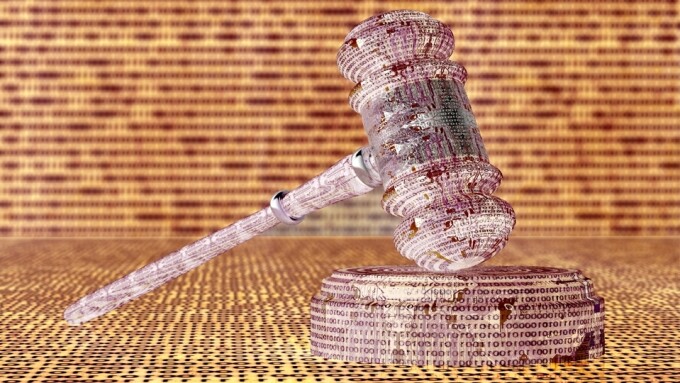WASHINGTON — A federal appeals court yesterday upheld a legal process that invalidated a patent held by Personal Audio, which had threatened numerous podcast producers with infringement suits.
On Monday, the U.S. Court of Appeals for the Federal Circuit affirmed an inter partes review ruling — a process that allows anyone to challenge a patent's validity at the federal Patent and Trademark Office — that was lodged by the Electronic Frontier Foundation.
News of the decision is welcome news for operators of podcasts, including the scores who operate adult entertainment-themed ones.
The EFF, after hearing complaints of podcast producers receiving demand letters seeking settlement monies, stepped in and said that it would challenge Personal Audio’s U.S. Patent No. 8,112,504, which describes a “system for disseminating media content representing episodes in a serialized sequence.”
EFF's petition challenging the patent showed that Personal Audio did not invent anything new and, in fact, other people were podcasting years before the company first applied for a patent.
In 2015, the Patent Office invalidated all of the challenged claims of the podcasting patent. Later, Personal Audio challenged the Patent Office decision.
But on Monday, the Federal Circuit sided with the EFF, deciding that the patent did not represent an invention, and podcasting was known before the company’s patent was applied for.
“We’re pleased that the Federal Circuit agreed that the podcasting patent is invalid,” said Daniel Nazer, an EFF staff attorney. “We appreciate all the support the podcasting community gave in fighting this bad patent.”
Industry attorney Maxine Lynn, who is not a party to the litigation, said that in order to be issued a patent, the invention must be "novel" (i.e. new) and "nonobvious."
"If a faulty patent is issued, the patent can be invalidated by a court as not being novel, which is what happened here," Lynn told XBIZ. "Bringing forward material that was published prior to a patent's filing date is a popular method to fight non-practicing entities (aka patent trolls) like the one here.
"The case could be appealed to the U.S. Supreme Court, which could bring the patent back into play," she said. "But for now, the U.S. Court of Appeals for the Federal Circuit has the final word.
"In the meantime, this has certainly been a long fought battle resulting in a big win for the podcasting community."







